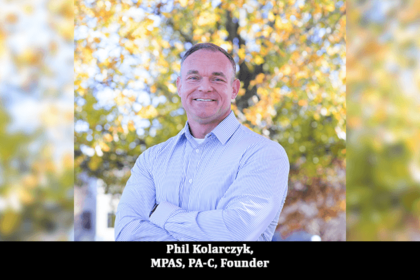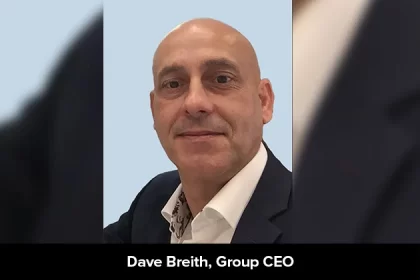Life insurance plays a crucial role in financial planning, especially for high-income earners in Long Beach. As wealth accumulates and financial responsibilities grow, the need for comprehensive coverage becomes increasingly important. Regular reviews of life insurance policies ensure that coverage remains aligned with changing financial circumstances and goals.
For affluent individuals, life insurance serves multiple purposes beyond basic income replacement. It can be a powerful tool for estate planning, business succession, and tax optimization. As income levels rise, so do potential tax liabilities and financial obligations. A well-structured policy can provide liquidity to cover estate taxes, fund buy-sell agreements, or maintain a family’s lifestyle in the event of an untimely death.
Financial landscapes evolve, and what was once an adequate policy may no longer suffice. High-income earners in Long Beach should consider seeking financial consultation by Randall Wealth Group to evaluate their current coverage and explore options that maximize benefits. This proactive approach helps ensure that life insurance remains an effective component of a comprehensive financial strategy.
Key Takeaways
- Regular policy reviews ensure optimal coverage as financial circumstances change
- Life insurance serves multiple purposes for high-income earners beyond basic protection
- Professional consultation helps tailor policies to specific financial goals and needs
Evaluating Life Insurance Needs and Options
High-income earners in Long Beach should regularly assess their life insurance needs and explore various policy options. This process involves examining financial circumstances, understanding different types of policies, and leveraging life insurance as a strategic financial tool.
Assessing Changes in Financial Circumstances
Financial advisors recommend reviewing life insurance coverage when significant life events occur. Marriage, divorce, having children, or purchasing a home can impact insurance needs. As income grows, individuals may need to increase their death benefit to maintain their family’s lifestyle. Health changes can affect premiums and insurability, making it crucial to secure adequate coverage while in good health.
Age plays a role in determining appropriate coverage amounts. Younger earners might opt for higher coverage to protect against long-term income loss. Older individuals may reduce coverage as financial obligations decrease.
Types of Life Insurance Policies
Term life insurance provides coverage for a specific period, offering lower premiums but no cash value. Whole life insurance offers lifelong protection with a cash value component.
Universal life insurance provides flexibility in premiums and death benefits. Variable universal life allows policyholders to invest in securities and mutual funds. Indexed universal life insurance links cash value growth to market indexes.
High-net-worth individuals often consider cash value policies for their investment and tax advantages.
Life Insurance as a Financial Tool
Life insurance can serve multiple financial purposes beyond basic protection. It can help cover estate taxes, ensuring heirs receive their full inheritance. Some policies offer a cash surrender value, providing a source of emergency funds or supplemental retirement income.
Certain policies allow policyholders to borrow against the cash value. This feature can provide financial flexibility during economic downturns or for investment opportunities.
For business owners, life insurance can fund buy-sell agreements or key person coverage, protecting the company’s financial stability.
Optimizing Life Insurance for Long-Term Benefits
Life insurance policies can serve as powerful financial tools for high-income earners when strategically optimized. Proper planning and regular reviews can enhance retirement security, minimize tax burdens, and provide flexibility as needs change over time.
Life Insurance and Retirement Planning
Cash value life insurance policies offer unique advantages for retirement planning. These policies allow for tax-deferred growth of the cash value account, which can supplement other retirement savings. Flexible premiums give policyholders control over contributions, while investment options in subaccounts or index funds provide growth potential.
High-income earners can use cash value policies to build wealth beyond traditional retirement plans. This strategy is especially valuable for those who have maxed out 401(k) and IRA contributions. The cash value can be accessed tax-free through policy loans, providing income during retirement without triggering required minimum distributions.
Tax Implications and Estate Planning
Life insurance plays a crucial role in estate planning for high-net-worth individuals. Policy death benefits are generally income tax-free to beneficiaries, helping to preserve wealth for future generations. For estates subject to estate taxes, life insurance can provide liquidity to cover tax liabilities without forcing the sale of other assets.
Working with an estate attorney can ensure life insurance aligns with overall estate planning goals. Proper policy ownership structure, such as an irrevocable life insurance trust, can help minimize estate taxes. Additionally, cash value growth is tax-deferred, and withdrawals up to the basis in the policy are tax-free.
Policy Updates and Riders
Regular policy reviews are essential to ensure coverage remains aligned with changing needs and goals. High-income earners should reassess their policies as their financial situations evolve. This may involve adjusting death benefit amounts, evaluating premium structures, or exploring new product features.
Insurance riders can enhance policy flexibility and protection. Common riders include:
- Accelerated death benefit: Allows access to benefits if diagnosed with a terminal illness
- Waiver of premium: Covers premiums if the insured becomes disabled
- Long-term care rider: Provides funds for long-term care expenses
Indexed universal life (IUL) policies offer potential for higher cash value growth tied to market index performance, with a guaranteed minimum return. These policies can provide upside potential with downside protection, making them attractive for some high-income earners.
Conclusion
Regular life insurance policy reviews are crucial for high-income earners in Long Beach. These reviews ensure coverage aligns with changing financial circumstances and goals. They also allow individuals to take advantage of new policy features and potentially improved rates.
Staying proactive with insurance planning helps protect assets and provide financial security for loved ones. High-income earners who prioritize regular policy assessments are better positioned to maximize the benefits of their life insurance coverage.
Randall Wealth Management Group and Vanderbilt Financial Group are separate and unaffiliated entities. Vanderbilt Financial Group is the marketing name for Vanderbilt Securities, LLC and its affiliates. Securities offered through Vanderbilt Securities, LLC. Member FINRA, SIPC. Registered with MSRB. Clearing agent: Fidelity Clearing & Custody Solutions Advisory Services offered through Consolidated Portfolio Review Clearing agents: Fidelity Clearing & Custody Solutions, Charles Schwab & TD Ameritrade Insurance Services offered through Vanderbilt Insurance and other agencies Supervising Office: 125 Froehlich Farm Blvd, Woodbury, NY 11797 • 631-845-5100 For additional information on services, disclosures, fees, and conflicts of interest, please visit www.vanderbiltfg.com/disclosures










